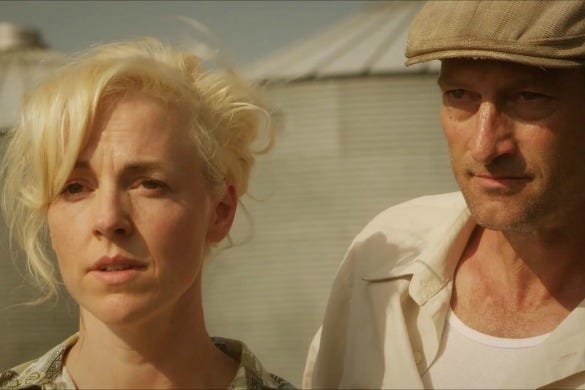Heartland: Wild Prairie Rose

“Wild Prairie Rose” is a story about going home after you thought you’d left it far behind, and discovering a pull toward that place and people that your instinct wants to resist.
This is an absolutely gorgeous-looking film, shot and set in rural Beresford, South Dakota. Director Deborah LaVine, making her first feature after several shorts, gives us a sun-dappled portrait of the fields and prairies, as well as the hardscrabble folks who toil there, living out quiet lives with rumbles of emotion underneath.
Tara Samuel plays Rose Miller, an independent woman who lit out long ago for the big-city life. She spent World War II as a genuine Rosie the Riveter, and now in 1952 works as an executive secretary in a large company. “It’s a very important job,” she’ll tell anyone that’ll listen, mostly to convince herself.
She’s come home because her mother, Pearl (Suanne Spoke), is struggling with an illness and needs the help — not that she’d ever say so. A rock of a woman and longtime widow, Pearl is still heartbroken that her only child seems not to want anything to do with the place she grew up. Wise but simple in outlook, she can’t help but take that to mean Rose rejects her own mother, too. They begin a long, tender reconciliation.
On a lark, she decides to shoot a movie using the local backdrop and a couple of teens she recruits as a way to entertain her mom, who loved going to the pictures. But the only theater in town closed and the nearest is 40 miles away, and between her claptrap truck and failing stamina it’s not possible.
The only one around who seems to know anything about cameras is James Hansen (Troy Kotsur), who runs the area repair shop. Jim is respected by the locals but not embraced, as he is deaf and never bothered to learn to read lips. This is in a time when sign language is viewed as unacceptable “slang,” forbidden in the schools for the deaf; employees can lose their jobs if caught signing.
Jim and Rose are clearly drawn to each other, and much of the story (screenplay by Sharon Greene) is about her journey homeward. Can she really stay here forever? Is being a fix-it man’s wife acceptable for someone who’s always craved adventure? Can they communicate without words?
Neither of them are spring chickens, and Rose’s nascent attempts to learn sign language are halting at first. Meanwhile, her mother’s health continues to deteriorate, her movie project is stalled and her job back in the city is threatening to fire her if she doesn’t return.
The real question of “Wild Prairie Rose” is what makes a good life, and whether you choose to listen to others or follow your own heart. It’s an often moving film that understands that love isn’t as easy as it’s shown in the movies.



